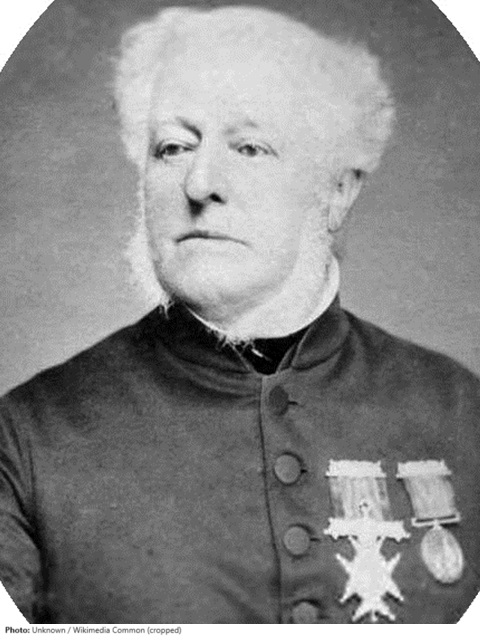William Penny Brookes was the founder of the Much Wenlock Olympian Games, an early influence on the thinking of Pierre de Coubertin towards the revival of the Olympics. Brookes was a doctor who was educated at various schools in Shropshire, and began his study of medicine at Guy’s and St. Thomas’s Hospitals in London in about 1827. He finished his studies in Paris and Padua, returning to Much Wenlock in 1831 to carry on the general practice of medicine which his father had started. He founded the National Olympian Association in 1865, the forerunner of the British Olympic Association. He was active in public affairs, serving as Justice of the Peace and Commissioner for Roads for the borough of Wenlock, and in 1841 formed the Wenlock Agricultural Reading Society. Brookes eventually became a Licentiate of the Society of Apothecaries and, in 1881, a Fellow of the Royal College of Surgeons. Brookes was an invited dignitary to Coubertin’s Sorbonne Congress of 1894 that founded the Modern Olympic Games, but he was unable to attend because of illness. He and Coubertin corresponded frequently and Brookes had Coubertin visit the Much Wenlock Olympian Games in October 1890. In 1881, Brookes was the first person who proposed that international Olympian Games be staged again, to be held in Athens.

 Great Britain
Great Britain GBR
GBR